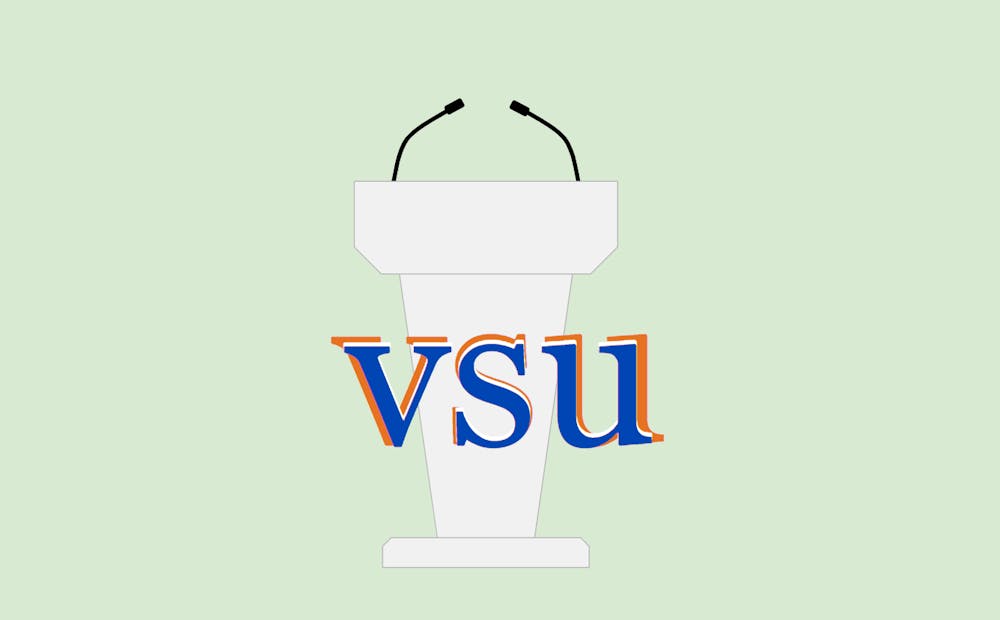It’s official — Virginia State University will set the stage for the second general presidential debate in 2024. This choice sets a new precedent for political history at large. Never before has a Historically Black College or University hosted such an event — past debates have been held at a variety of predominantly white universities, and some have been held at conference halls. We should applaud the Commission on Presidential Debates for taking this first step toward adequate representation of HBCUs. Nevertheless, this is a largely symbolic step that begets a thousand more actionable ones from the candidates that will be present on that debate stage.
HBCUs have long played an integral role in empowering marginalized communities nationally, and a celebration of their contributions has been a long time coming. Virginia alone is home to five of these institutions — VSU, Hampton University, Norfolk State University, Virginia Union University and Virginia University of Lynchburg. All of these schools, and the HBCU system as a whole, have been instrumental to the education and empowerment of Black Americans — enrolling 10 percent of the Black student population despite making up only 3 percent of universities as well as ensuring a greater amount of financial security for their students compared to other higher education institutions. Additionally, the alumni of these institutions experience greater social mobility compared to alumni from marginalized communities at other schools, a statistic which speaks to the quality of the education provided at HBCUs. For all of these reasons, HBCUs continue to be a popular choice for communities that face systematic marginalization.
Importantly, holding the debate at VSU draws attention to the Black community, Black students in particular, and the crucial legacy of HBCUs in America at a time when politicians increasingly push marginalized voices further to the sidelines. But VSU cannot just be a symbol. This is also a vital chance for candidates to listen to the concerns of Black community members firsthand and to use this engaged listening to make statements on their tangible commitments both to the Black community and equitable education at HBCUs. While the past few presidential debates have been dominated by performative one-liners and ridiculous statements, students at VSU must be able to expect more political initiative from our candidates than their ability to respond to insults.
HBCUs need and deserve more than symbolism and performance. The fight to equitably empower the students and faculty of these HBCUs is far more complex than any debate would reflect, but that does not mean that questions about how the candidates will support HBCUs should be skipped. In fact, the difficulty of discussing and enacting these policies is exactly why the responsibility of these policies should be placed on our next presidential candidate — they, not the Black community who have clearly advocated for themselves for decades, bear the presidential responsibility of addressing past discriminatory education policies and working to repair them for future generations. They will possess the power to shape policy that could equitably and financially empower HBCUs minutes after inauguration — or do the opposite, if the candidate is so inclined. Therefore, candidates must be pressed to outline realistic initiatives and efforts to uplift HBCUs by addressing some of the structural inequities — both financial and political — that these educational institutions face.
Tangible initiatives are needed now more than ever because many HBCUs are currently in danger. Even before the recent ruling to end affirmative action in college admissions, applications to HBCUs had increased by 44 percent. This is likely to continue following the SCOTUS ruling because the target demographics of HBCUs has been further disenfranchised in educational settings. Increases in applications pose a serious concern for HBCUs, as their endowments and federal and state funding may not be able to support what could be an exponential increase in their student populations. Research has supported the consensus among HBCU leadership that huge funding disparities exist between HBCUs and predominately white institutions. These disparities must be diminished in order to appropriately and equitably educate all students in America.
No matter which candidate wins, they must strive to appropriately fund these indispensable institutions, supporting these schools’ infrastructure, faculty and programming in order to fit the needs of their growing student populations. Furthermore, the next president must meet this increase in infrastructural backing for HBCUs with corollary reconsideration of student debt — HBCUs often enroll a higher amount of low-income students than other universities, and therefore have disproportionately higher student rates of borrowing and unmet financial need. In the same vein, the president elected in 2024 must work to re-evaluate the federal loan repayment process, increase the availability of grant aid and work-study opportunities for lower-income students and generally work to fight against the student debt gap plaguing Black Americans. The location of the debate has created the perfect foundation for these thoughtful policies to be centered.
HBCUs may not be at the top of the list of priorities for our presidential candidates at the moment — nor are they at the top of the nation’s priorities. However, the announcement of this presidential debate, located at an HBCU, should be an opportunity to recognize the fundamental need for HBCUs — and begin treating them with the importance they merit. They are an integral element for supporting and educating marginalized communities within America, and the presidential candidates invited to Virginia State University must not only recognize that, but also emphasize concrete policies to secure the futures of these institutions. Bridging the gap between equal and equitable college experiences will actualize the president’s sincere value for an education of all their citizens.
Scarlett Sullivan is a Viewpoint Writer who writes about Politics for The Cavalier Daily. She can be reached at opinion@cavalierdaily.com.







